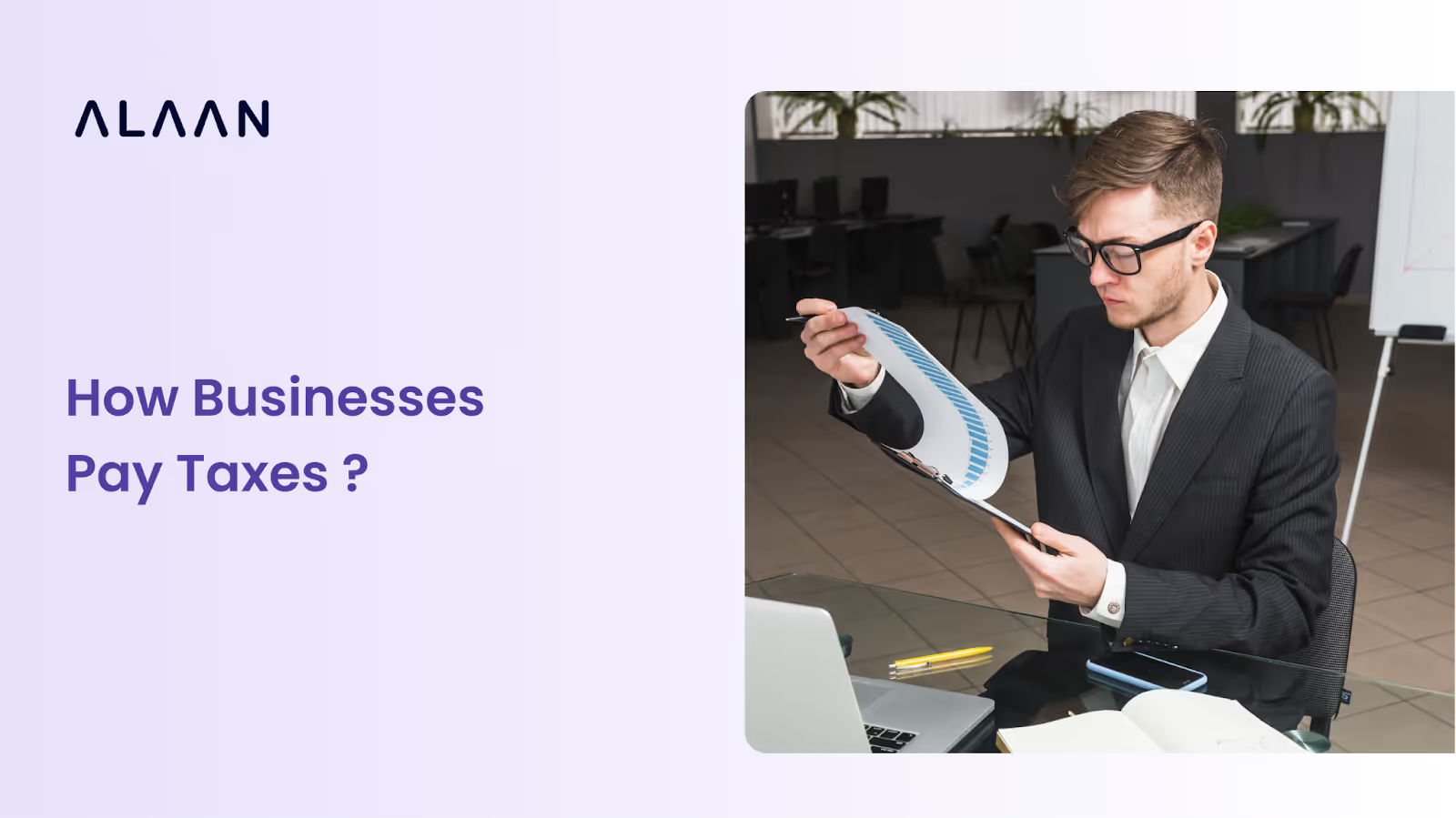With the introduction of the UAE Corporate Tax, the United Arab Emirates (UAE) has taken a significant step toward aligning with the global minimum tax standards outlined in the OECD's Base Erosion and Profit Shifting (BEPS) project’s Pillar Two.
As per the corporate tax legislation, a Qualifying Free Zone Person (QFZP) is a company operating within a Free Zone (entitled to a 0% tax rate) maintaining its tax-exempt status as per the governing laws of that zone. This exemption is limited to the geographical area of a Free Zone and the qualifying income generated by businesses operating in these zones. However, navigating the complexities of this legislation and ensuring full compliance poses a major challenge for businesses.
In this blog, we will simplify these complications and provide you with an in-depth understanding of QFZP rules. We will explain who is considered a qualifying Free Zone Person, what qualifies as qualifying income, and how Free Zone businesses will be taxed if they earn a non-qualifying income.

Understanding the Mainland and Free Zone Businesses
In the UAE, you have the option to set up your business either on the mainland or in one of the 46 Free Zones. The choice between a mainland or a Free Zone setup depends on the nature of your business, your target market, and any specific business needs.
- Mainland Businesses are registered with the Department of Economic Development (DED) in each UAE emirate. They can trade freely across the UAE as well as with other countries. The Federal law in the UAE has been amended to allow foreign investors to own up to 100% of their mainland company in specific business activities. This includes certain professional services that can be 100% foreign-owned. However, some industries, such as finance, banking, and insurance, may still require a portion of mandatory shareholding by Emirati partners. As of 2023, these companies are legally required to file tax returns and pay a 9% corporate tax on their taxable income exceeding AED 375,000 every year.
- Free Zones offer 100% foreign ownership for businesses. These businesses must be registered with the respective Free Zone Authority where they conduct operations. Along with export-oriented companies, these zones focus on various industries like trading, logistics, manufacturing, and technology as well. Free zone companies are restricted from directly trading within the UAE mainland without a local partner or distributor. However, they can trade freely within the Free Zone itself and with other countries. Qualifying free zone businesses are exempt from paying any kind of corporate tax.

Who is a Qualifying Free Zone Person (QFZP)?
To be considered a Qualifying Free Zone Person, your business must meet these conditions as outlined in Article 18 of the Corporate Tax Law:
- Registration with a Free Zone Authority in the UAE: Your business must be registered with a Free Zone Authority within the UAE and maintain a significant presence in the country. This ensures that your company is recognized as a legitimate entity working within the Free Zone and is subject to its regulations and benefits.
- Participation in Qualifying Activities and Earning Qualifying Income: Your enterprise should be engaged in qualifying activities as defined by the CT law. The income your business earns from these activities should be classified as qualifying income. To qualify for exemption, you must ‘not choose’ to be subject to UAE Corporate Tax as per Article 19 of the decree law.
- Compliance with UAE’s Transfer Pricing Regulations: Your business must comply with the UAE’s transfer pricing regulations as specified in Articles 34 and 55 of the Federal Decree Law No. 47 of 2022. These regulations ensure that transactions between related entities are conducted at arm’s length or fair market value. This rule aims to prevent tax evasion or manipulation through intra-company transactions.
If your company does not meet any of these conditions during a tax period, you will lose the special tax status from the start of that year. However, there are exceptions and the Minister can decide conditions under which your enterprise might keep its special status or lose it starting from a different date.

What is Qualifying Income?
As a Qualifying Free Zone Person, you benefit from a 0% corporate tax rate on your qualifying income. This income is earned from qualifying business activities conducted within the designated Free Zone. The UAE Cabinet Decision No. 55 of 2023 specifies the criteria for qualifying income:
- Transactions with Other Free Zone Persons: Income earned by your business from transactions with other Free Zone entities qualifies. This excludes any income from activities designated by the Minister as ‘excluded activities.’
- Transactions with Non-Free Zone Persons: Income that your enterprise earns from transactions with mainland companies can also qualify, but only if the activities meet the rules and are not classified as excluded activities. There is also a de minimis threshold for such income, ensuring it remains a minor portion of your overall earnings.
- De Minimis Requirements: This refers to the permissible level of income that your business can generate from non-qualifying activities as a QFZP. While some income from activities like renting out office space might be allowed, it cannot be a significant portion of your business operations. Specific de minimis thresholds and calculations are established by the relevant authorities.
In this context, the concept of a Beneficial Recipient is crucial to determine where your qualifying income is coming from. It is an entity that ultimately enjoys the benefits of your services or goods and not an intermediary that simply passes it on.
Qualifying Income for Permanent Establishments (PEs)
If your QFZP business has a significant operational presence outside the Free Zone (e.g., a warehouse in the mainland UAE), this external operation might be considered a ‘permanent establishment’ (PE). Any income generated by this PE would be subject to the 9% corporate tax by the Federal Tax Authority (FTA).
Qualifying Income for Immovable Property located in a Free Zone
Any income earned from renting out a commercial property located within the Free Zone is considered qualifying income. However, there is an exception here as the revenue from renting to non-Free Zone businesses for commercial purposes shall not be considered as qualifying income.
What is Considered a Qualifying Activity?
Under Article 18 of the UAE Corporate Tax Law, the following activities conducted by a Qualifying Free Zone Person are considered as qualifying activities:
- Producing goods or materials.
- Processing goods or materials.
- Reinsurance services under the supervision of the state's competent authority.
- Management of funds under the watchful eye of the state's regulatory body.
- Ownership of stocks and securities.
- Managing and operating ships.
- Services for managing wealth and investments that are monitored by the state's regulatory authority.
- Financing and leasing aircraft, including their engines and interchangeable components.
- Distributing goods or materials from a designated zone to a reselling customer, including any modification or processing of these goods for resale purposes.
- Providing headquarters services to affiliated entities.
- Offering treasury and financing services to associated parties.
- Providing logistics services.
- Conducting any supportive activities related to the above-listed services.
What is the De Minimis Rule?
As a QFZP, your business enjoys a 0% corporate tax rate on its qualifying income. However, it might also generate some income from non-qualifying activities. The UAE government does not list these activities as eligible for the 0% corporate tax rate.
Here, the De Minimis Rule comes into play and specifies that if your business is a QFZP but has some non-qualifying income, it can still qualify for corporate tax exemption. But to be eligible for this benefit, you must fulfill the qualification criteria of the De Minimis Rule.
According to the rules, if the income you generate from non-qualifying activities is below the De Minimis amount, you can still avail 0% corporate tax rate on the total income. This threshold can be either 5% of your total revenue or AED 5 million, whichever is lower.
Optimize your Expense Management with Alaan
Whether your company is a Qualifying Free Zone Person (QFZP) or not, keeping a close eye on your business expenses is crucial. Having real-time visibility into the spending patterns can help you identify potential cash leakages, take timely corrective action, and create realistic budgets and future forecasts.
With Alaan’s corporate card and spend management solution, you can:
- Keep real-time track of expenses: Alaan ensures that all your tax-deductible expenses are recorded. This can help you maximize your tax savings and ensure compliance with the UAE Corporate Tax Law.
- Reduce human error in expense reporting: By automating your expense reporting process, Alaan helps minimize errors and ensure accuracy in your tax filings.
- Ensure expense policy compliance: With Alaan’s spend management solutions, you can set up custom expense policies and ensure that all expenses are in line with these policies.
- Get valuable insights: Alaan offers crucial data about where your company is spending its money, to help you take strategic measures for cost control. With detailed expense reports and analytics, you can identify spending trends and areas for cost reduction.
Given the complex nature of UAE Corporate Tax law, having a robust spend management solution like Alaan can be a game-changer for your business. It not only helps you navigate the tax landscape effectively but also empowers you to make informed decisions about your business expenditures.
Want to learn about how Alaan can help your business, connect with our experts.


.avif)







